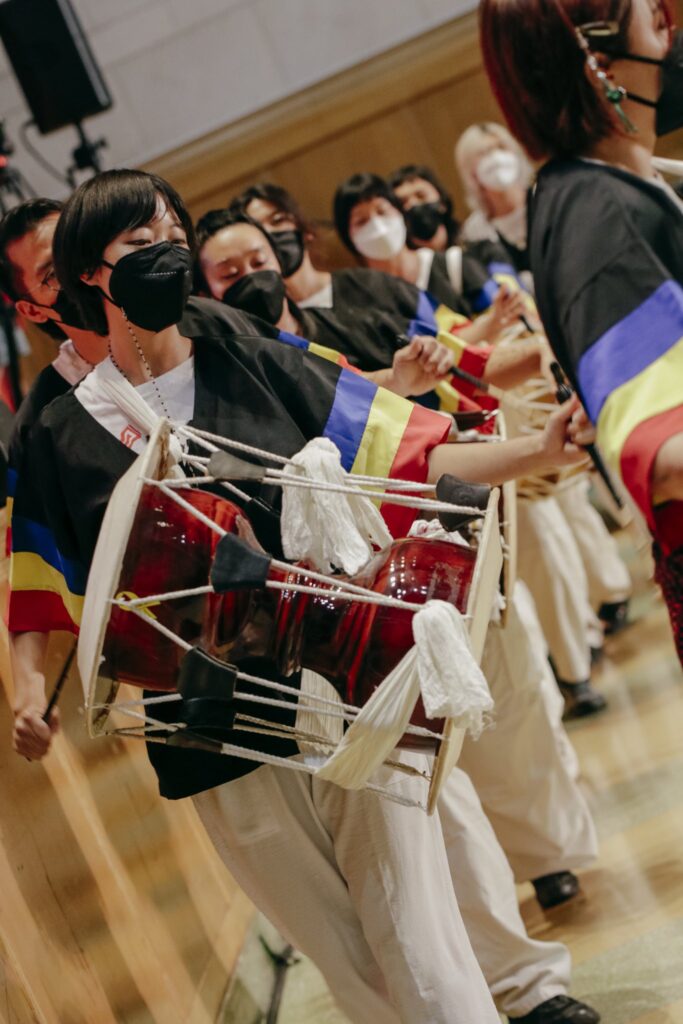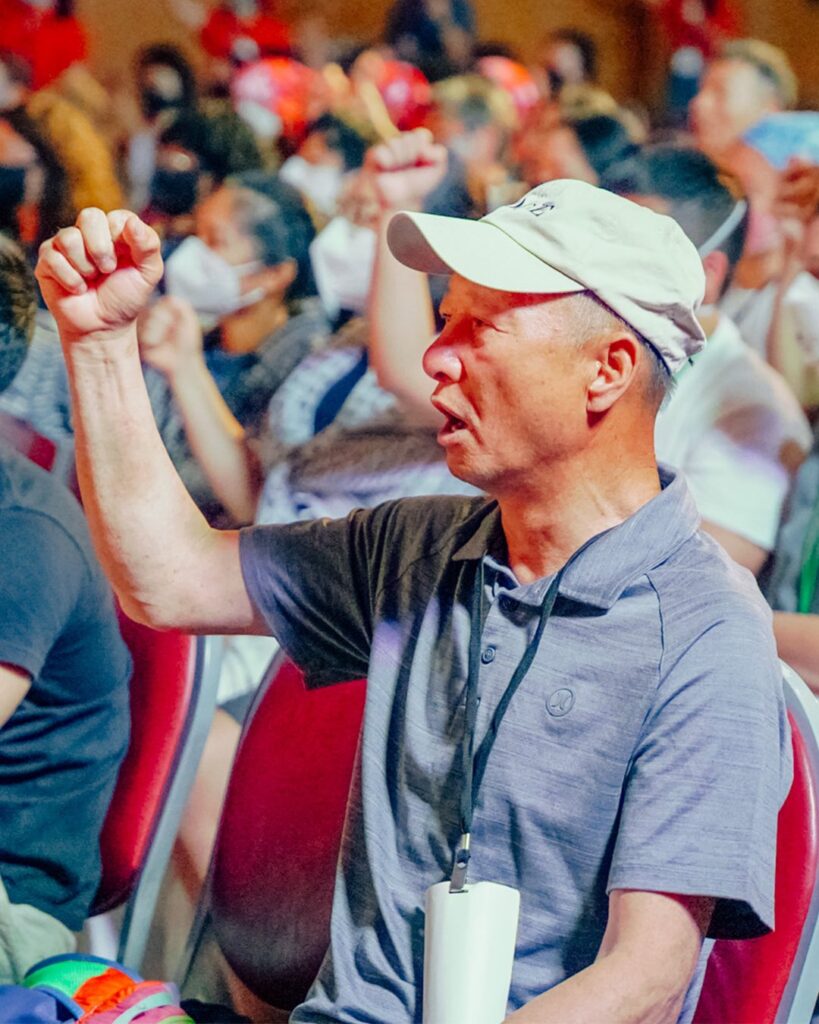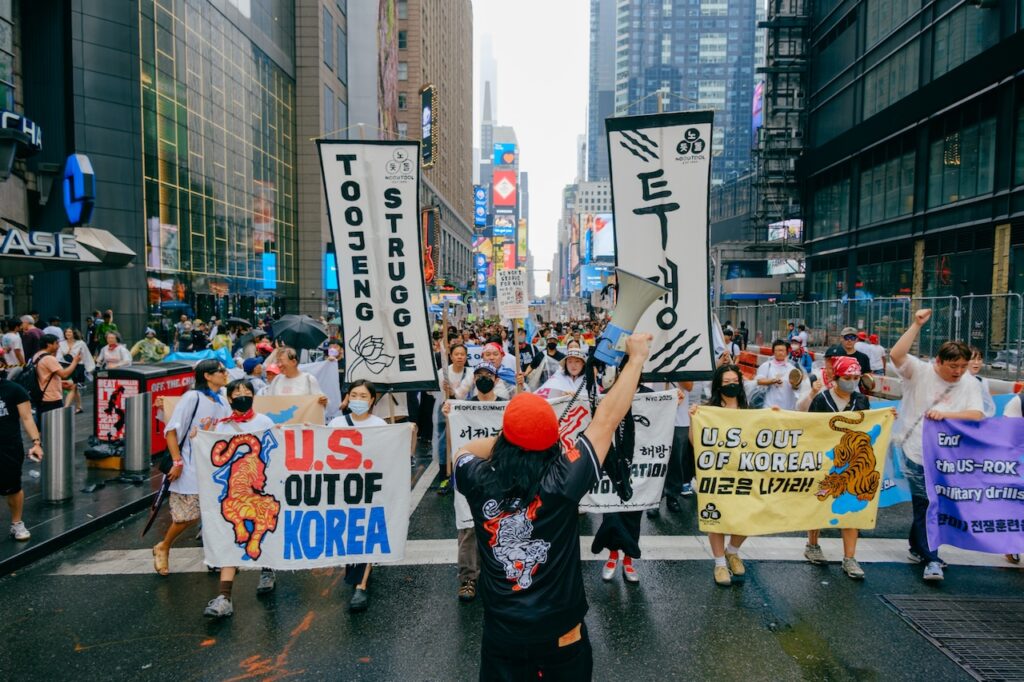For Korean anti-imperialist organizers that organized the People’s Summit for Korea in New York City, the stakes of US militarism and escalating tensions in the Pacific region could not be higher.
Ju-Hyun Park, a lead organizer of Nodutdol for Korean Community Development, a Korean diaspora organization fighting for national liberation, told Peoples Dispatch that the struggles against US militarism in Korea “are really concerning the survival not only of the Korean people, of peace and development in East Asia, but really the future of humanity itself.”
From July 26 to July 27, Nodutdol, (alongside other groups including Koreans for Anti-Imperialism and Sovereignty, Korea Peace Now Grassroots Network, Koreans 4 Decolonization, Korea Policy Institute, The People’s Forum, ANSWER Coalition, Anti-War Action Network, Dissenters, and the United National AntiWar Coalition) held the inaugural People’s Summit for Korea.
A large delegation of activists and movement leaders traveled across the Pacific from South Korea to present lessons learned from struggles on the peninsula.
Kyung-wan Ryu of the Korea International Peace Forum spoke on how South Korea serves as a key lynchpin of US imperialism in the region, labeling the country “a permanent outpost in the US strategy of global East Asian dominance.”
Ryu detailed the decades of history of the Korean movement opposing US militarism. “The 2002 death of a middle school girl in an armored US military vehicle sparked nationwide anti- American sentiment. The 2008 candlelight vigil against the US-Korea Free Trade Agreement was the largest movement of its kind, lining the streets of Seoul with one million people, and rekindling memories of the defense of economic sovereignty.”
Yeon-hee Lee of Action for Peace Sovereignty, Beyond Peace spoke on the Mutual Defense Treaty between the United States and South Korea that was signed in October 1953. She highlighted that in the last 72 years since its signing, “the US military bases on the Korean Peninsula and the US military have caused a lot of damage and problems, including various crimes, environmental pollution, and military accidents.” According to Lee, “It is up to us, the people of South Korea, to bring the new government and the ruling party to the side of self-determination and sovereignty in our square. The alliance and bases movement to stop the US outposts in the masses is a fundamental movement that encompasses all issues, including alliances and bases, because we are living in such a time and in such a region that World War III could happen in Northeast Asia.”
 People’s Summit for Korea opens with a cultural performance (Photo: Jaylen Strong)
People’s Summit for Korea opens with a cultural performance (Photo: Jaylen Strong)
Challenging the demonization of the DPRK
Speakers proved unafraid to broach some of the most controversial political topics within a US context, including the Democratic People’s Republic of Korea, as well as neglected subjects in mainstream discourse, such as the genocide of 2.5 million Korean people during the “forgotten” US war against Korea between 1950 and 1953.
“Imperialism wants us to believe that the government of North Korea, and the people of North Korea, are completely distinct, and fundamentally antagonistic,” said Nodutdol member Betsy Yoon, who reported on a visit to the DPRK during a panel discussion titled “The Long Revolution of the Democratic People’s Republic of Korea”. Yoon argued that “this lie facilitates any number of imperialist maneuvers, ranging from sanctions, to conducting war drills, as it allows the imperialists to say that they are carrying out these actions on behalf of North Korea, and against their government.”
“One of the problems that we face in the United States is the nonstop demonization and caricaturing of the DPRK,” said anti-war activist and executive director of the ANSWER Coalition, Brian Becker, on the same panel. Becker described some of the conditions of censorship on this topic within the US, and how those advocating for peace and an end to the US occupation of Korea risk being labeled as “agents of the DPRK.”
 An attendee at the People’s Summit for Korea (Photo: Jaylen Strong)
An attendee at the People’s Summit for Korea (Photo: Jaylen Strong)
Uniting struggles across the Pacific
The Summit also provided a space for activists involved in national liberation struggles across the Pacific region to unite and find common ground in their fight against US imperialism. “All of our struggles are shared struggles. The independence movement for Hawaiian liberation is the same as the Korean movement for their liberation,” Leimaile Barrett, of Hawaiian independence party Hui Aloha ʻĀina, told Peoples Dispatch. Barrett described how both Korea and Hawai’i endure US occupation, recounting how the constant flight of US military planes above her home in Honolulu makes her windows shake multiple times per day.
Kawena’ulaokala Kapahua, also a part of Hui Aloha ʻĀina, spoke at a panel titled “Anti-Imperialism in the Indo-Pacific,” and described how “the Pacific islands have been dealing with empire as long as the Europeans have known the world wasn’t flat.”
But Kapahua quickly pivoted to an analysis of present-day imperialism. “As we enter a new phase of this American confrontation against China, it is critical for us to remember that this was always the end goal. Their plan has always been confrontation with Asia and China. They just didn’t expect that it would be on the scale that it is now because of the rising of the people of Asia, from Korea, to Indonesia, from the Philippines, to China itself.”
Hundreds rally to demand “US out of Korea!”
 Hundred march through the streets of Manhattan in demonstration following People’s Summit for Korea (Photo: Wyatt Souers)
Hundred march through the streets of Manhattan in demonstration following People’s Summit for Korea (Photo: Wyatt Souers)
Following the summit, Korean national liberation organizations joined forces with representatives from the Korean left and trade union movements, as well as other anti-imperialist groups based in the United States, to hold a rally and march in Times Square. Hundreds of demonstrators held banners reading “US out of Korea” and “Armistice then, liberation now!”
Mee-Hee Son, of the Korean Alliance for Progressive Movement, united front organizations of students, peasants, workers, and activists in South Korea, spoke at the rally. Son declared that the Korean struggle is “is not just about one nation.”
“It is a fight of international solidarity against the domination, war, and exploitation imposed by imperialism on the peoples of the world,” she asserted.
The post People’s Summit for Korea unites struggles for national liberation to fight the drive towards “World War III” appeared first on Peoples Dispatch.
From Peoples Dispatch via this RSS feed


